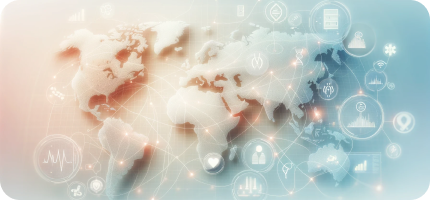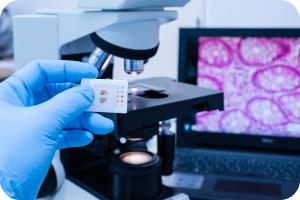Our Services


Data Acquisition
Capture Quality Data. Enhance Analysis. Broaden Scope
Data Acquisition
Capture Quality Data. Enhance Analysis. Broaden Scope
Data Acquisition systematically collects, harmonizes, anonymizes, and annotates data from various sources to ensure detailed coverage and accuracy for advanced analytics and decision-making.
Know More
Data Lake
Access Diversity. Use Seamlessly. Support Research
Data Lake
Access Diversity. Use Seamlessly. Support Research
Data Lake provides a centralized repository to structured diverse cancer datasets. Access and utilize the data with high flexibility and scalability to meet evolving diagnostic AI needs.
Know More
AI Platform
Accelerate Discovery. Uncover Insights. Streamline Processes.
AI Platform
Accelerate Discovery. Uncover Insights. Streamline Processes.
AI Platform integrates access to diverse data and harnesses technology to accelerate discovery, uncover deep insights, and streamline complex AI development processes efficiently.
Know More
Diagnostic AI Algorithm
Predict Accurately. Diagnose Early. Improve Healthcare
AI Algorithm
Predict Accurately. Diagnose Early. Improve Healthcare
For AI Algorithm Development, we partner with top research centers to develop AI algorithms on the PAICON AI Platform. The streamlined process, aligned with ISO13485 standards, ensures accurate, early diagnoses for timely interventions and improved healthcare outcomes.
Know MoreTrusted By
Transforming lives through data
10
+Races
60
+Primary Sites
13000
+Cases
3.2
+Files
Explore our Vision: Closer look at PAICON
Discover what drives us at PAICON with our introductory video. Get a glimpse of our innovative approaches and the cutting-edge solutions we provide. Whether you're a potential client or a future team member, our video will give you a deeper understanding of our mission and the impactful work we do. Watch now and see how we're shaping the future!
Schedule A DemoReal world Results
Discover how AI is making the difference








